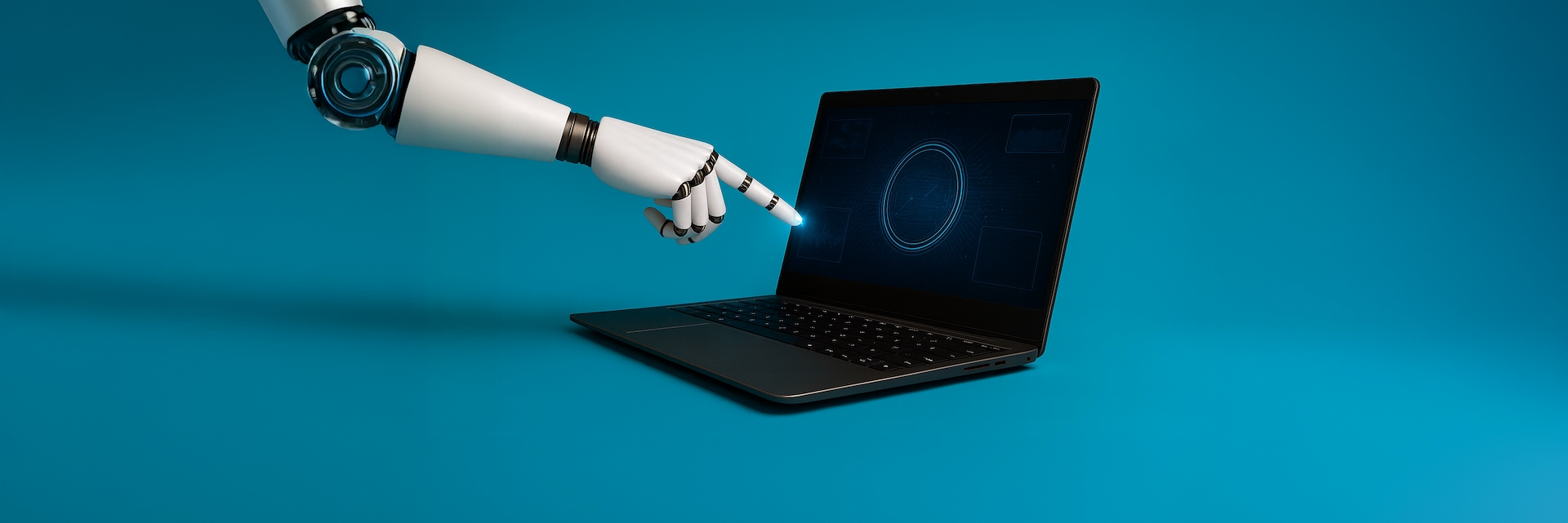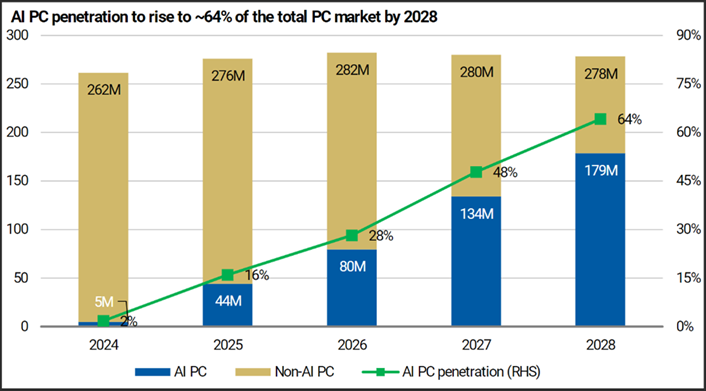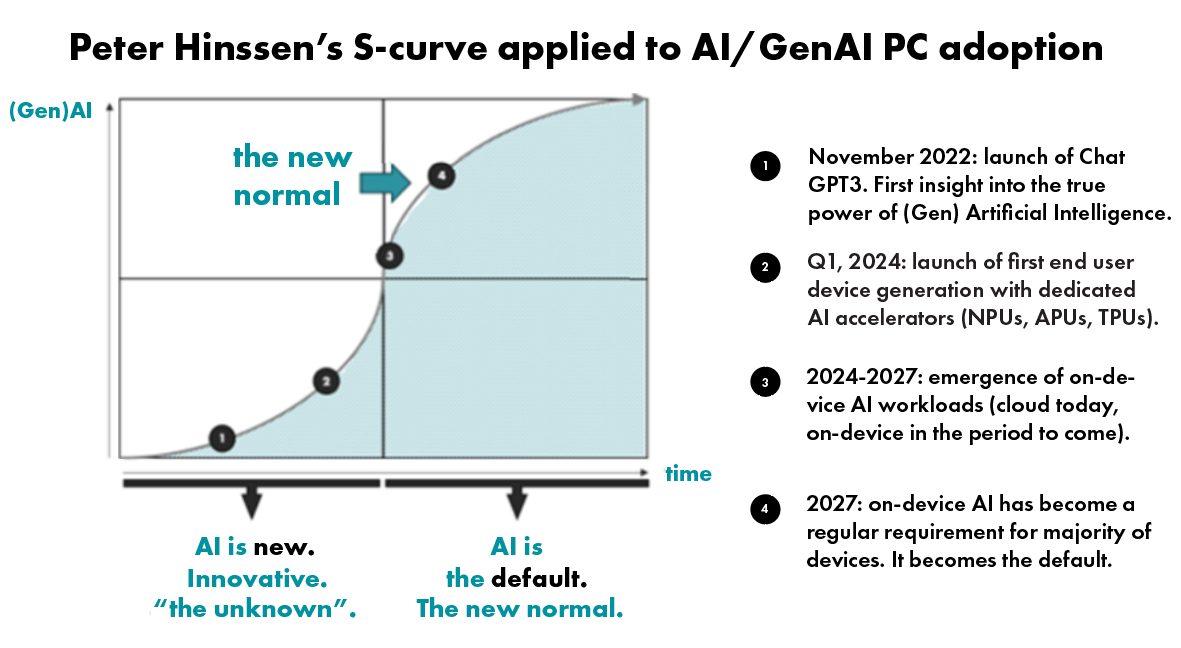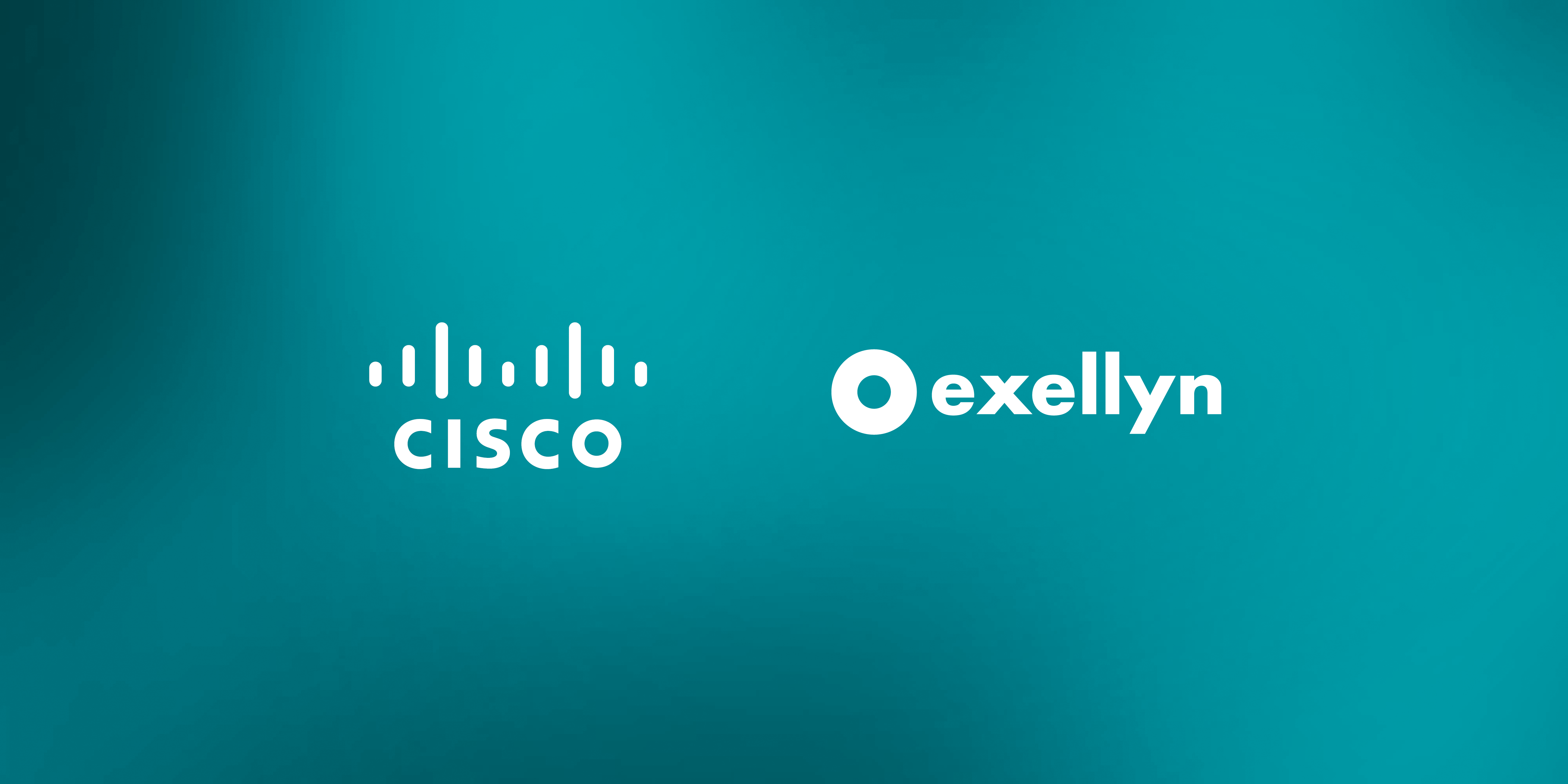
AI-capable laptops: the new normal?
Business operations are entering a new phase as artificial intelligence takes its seat inside our everyday laptops. As specialized hardware and smart software transform routine workflows, organizations will face both opportunities and challenges. Are you curious about how these devices are impacting the industry, what’s driving market adoption, and what it could mean for your refresh cycles? Let’s take a closer look at what’s beyond the headlines, and how global businesses are preparing for a new generation of computing
what is an AI-capable laptop
At its core, an AI-capable laptop is a device equipped with specialized hardware designed to handle artificial intelligence tasks efficiently. This typically includes a neural processing unit (NPU), which offloads AI-related computations from the main CPU or GPU, allowing for faster processing of tasks like machine learning, image recognition, and real-time automation. Unlike traditional laptops, these models can run AI models locally, reducing reliance on cloud servers and potentially improving battery life and performance for everyday use.
For businesses, this means laptops that can support generative AI applications, automate routine tasks, or even enhance security features without constant internet connectivity. As of 2025, these devices are optimized for workloads such as video editing, data analysis, and collaborative tools, making them suitable for roles in creative, analytical, or remote work environments. Experts anticipate that in the coming years, the range of roles benefiting from AI laptops will expand significantly, driving deeper market adoption and transforming how businesses leverage technology in everyday operations.
current players in the AI laptop market
In 2024, several major manufacturers have already entered the market, releasing models that integrate AI capabilities. Microsoft led the charge in May with its Copilot+ Laptops, either the Surface version which feature Snapdragon® X Series processors, or the many available from their OEM partners Acer, Asus, Dell, HP, Lenovo and Samsung:
(https://newsroom.intel.com/client-computing/2025-ai-pc-buyers-guide=)
- Dell: Offers AI-ready laptops in its XPS and Latitude lines, with options like the XPS 15 featuring Intel Core i9 processors and NVIDIA RTX GPUs for demanding AI tasks.
- HP: The OmniBook Ultra Flip and other models incorporate Intel's AI Boost NPU, providing up to 48 TOPS (trillions of operations per second) for local AI work, alongside strong battery life and convertible designs.
- Lenovo: Models such as the Yoga Slim 9i and ThinkPad X1 2-in-1 come with Intel Core Ultra chips, offering robust AI performance for business users, including features like intelligent power management and up to 8 hours of real-world battery life.
experts predictions: a surge in AI PC shipments
Industry analysts at Gartner provide a clear picture of the trajectory. In their 2024 forecast, they predicted worldwide shipments of AI PCs would total 43 million units by the end of that year, a significant jump from the 21 million shipped in 2023. Looking ahead, Gartner anticipates AI-enabled PCs will make up 43% of all PC shipments by the end of 2025, with total AI PC shipments reaching 114 million units, a 165.5% increase from 2024. By 2027, they project that 60% of PCs sold will include on-device AI as a standard feature.
Morgan Stanley research offers a more conservative outlook, but ultimately aligns with the long-term trend: within a few years, AI-capable laptops are expected to become the majority of PCs sold worldwide.

why timing matters: be early rather than late
While the current need for AI-capable end-user devices remains limited for most companies, experts predict this will change quickly, potentially as fast as within the next 12-18 months.
Adopting early could position businesses to capitalize on emerging AI tools without disruption. As tech thought leader Peter Hinssen has noted, innovation cycles are accelerating, and what seems niche today could become essential tomorrow (What he calls “the new normal”). Here is his famous S-curve applied to AI/GenAI PC adoption:

Consider the timeline: ChatGPT was publicly launched in November 2022, just over two and a half years ago, as of mid-2025. In that short period, AI has shifted from a topic of discussion to a core element in business strategies, even if implementation is still ramping up. Fast-forward another 18 months, and AI could be the new normal in daily operations, much like smartphones became indispensable over a decade ago.
cloud-based AI vs. on-device solutions
Gartner forecasts that by 2027, most AI and generative AI applications driving automation and productivity will be cloud-based, meaning they won't necessarily require powerful on-premise AI hardware in laptops. This setup allows companies to leverage remote servers for heavy lifting, thereby keeping costs low for now.
However, the landscape is evolving. As we saw, by 2027, on-device AI is expected to become a standard requirement in 60% of new PCs, enabling local processing that enhances speed and reduces latency. Furthermore, regulatory and privacy concerns will drive some of those applications towards local solutions.
addressing data privacy and ethical concerns
As AI adoption and regulatory pressure grow (with the EU starting to tackle the issue this year with the EU AI act), so do concerns around data privacy and ethics. Safeguarding sensitive information is absolutely vital for companies, and relying solely on cloud-based AI could expose them to risks such as data breaches or compliance issues. This is pushing a trend toward on-device AI solutions, where processing happens locally on the laptop, minimizing the need to transmit data to external servers over which companies don’t have much control.
Ethical considerations, such as bias in AI algorithms or transparent data usage, may further encourage businesses to opt for on-premise capabilities. These factors could limit the expansion of cloud-only AI, making AI-capable laptops a practical choice for maintaining total control over proprietary information.
balancing costs and productivity gains
AI-capable laptops often come at a premium, typically 10-20% more expensive than standard models due to their specialized hardware. Yet, the potential productivity benefits might offset this.
A field experiment involving developers at Accenture and Microsoft found that access to AI tools like GitHub Copilot increased output, with participants completing 7.51% to 8.69% more pull requests per week at Accenture. A broader study by Adecco suggests AI can save workers an average of one hour per day by automating routine tasks, leading to measurable gains in efficiency.
Over time, these improvements could compound. Just magine the impact a few years from now as AI tools mature. Businesses will need to weigh these factors against their budgets, but the data points to tangible returns for roles involving coding, content creation, or data processing, even today.
managing device lifecycles
For IT teams, managing device lifecycles is a careful balancing act. Organizations that rely on a standard four-year refresh cycle for end-user computing (EUC) devices could face a dilemma if they opt for non-AI laptops today, especially as AI use cases accelerate. For example, emerging demands for dedicated AI compute power might mean unexpectedly upgrading devices just two years into their lifecycle.
Embracing AI-ready models early on can help avoid these mid-cycle surprises, ensuring devices stay in step with evolving business needs and minimizing unplanned expenses. At the same time, it's important to evaluate your requirements carefully; a blanket upgrade to AI-capable laptops across the entire fleet may not be the most practical approach right now.
conclusion
In summary, AI-capable laptops represent an exciting step forward in business technology, with widespread adoption predicted by 2027. Drawing on shipment forecasts from Gartner and Morgan Stanley, as well as productivity studies from Adecco, the evidence points toward a future where on-device AI not only boosts efficiency but also helps businesses meet new privacy and regulatory demands.
Ultimately, whether to upgrade now depends on your company's specific needs: review the facts and decide what's best for your operations. Many roles may not be significantly affected just yet, but planning ahead and staying informed will help ensure that when AI functionality becomes mission-critical, your teams and infrastructure are ready to adapt without disruption.
At Exellyn, we're here to help you navigate these changes with tailored IT solutions. If you're exploring AI infrastructure options, feel free to reach out for a consultation, and our team of experts will provide clear guidance, assess your specific requirements, and deliver end-to-end support to ensure your IT strategy is aligned with your business goals.
Enjoying this article?
Follow expert insights,
industry trends, and more
in our quarterly newsletter!
share with your network
click here to download




